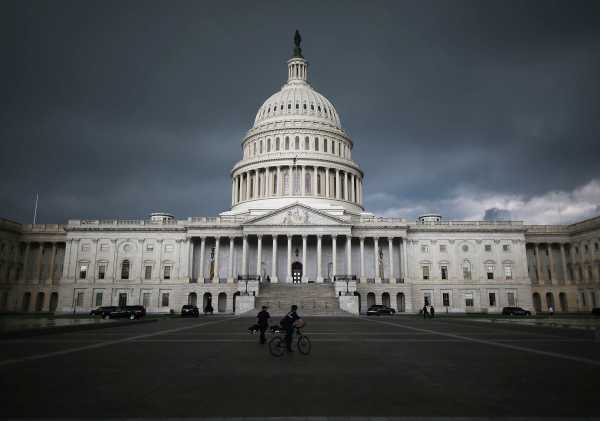
Nothing President Donald Trump says about trade makes sense, so you have to look at the actual policy.
That’s especially true if you, like me, are broadly sympathetic to the view that the pre-Trump bipartisan trade policy consensus really had veered off course. And looking this morning at the text of the apparent deal to rework NAFTA — including a rebrand of the agreement as USMCA (a.k.a. the United States-Mexico-Canada Agreement) — it seems like Trump has made the deal better in some ways and worse in others, and most of all has actually not changed the underlying structural flaws in the US approach to trade policy.
The good, the bad, and the meh
A lot of the US-Canada wrangling was about the technical details of dispute-resolution mechanisms, which I don’t think is very interesting in this context and where, at the end of the day, Canada overwhelmingly got its way and nothing is changing.
So we’re left with three big buckets of change.
The good: cars. The new deal both raises the share of North American auto parts that need to be in a car to qualify as NAFTA-compliant and also basically imposes higher minimum wage rules on Mexican auto factories. This is good for American autoworkers and probably good for Mexican autoworkers, and the downside is cars will be more expensive. But expensive cars are good! Obviously Trump is not much of an urbanist, but I am — and at the end of the day finding ways to discourage car ownership that help rather than hurt US autoworkers is a good idea.
The bad: copyright. As has become typical for American trade deals, one big thing we did was strong-arm our trade partners into adopting America’s super-long copyright term rules. This is good news for you if you happen to own the copyright to, say, Batman. But it’s bad public policy. And one of the worst things the US does is use international trade negotiations to spread our bad domestic copyright policy to foreign countries.
The meh: dairy. After all the screaming and yelling about Canadian dairy tariffs, we got Canada to make concessions on allowing imported American milk that are slightly bigger than the concessions they made in the Trans-Pacific Partnership. This is a nice small win for US dairy farmers and Canadians who consume dairy products. But that’s the weird thing about it: This is a concession the US “won” in the talks, but the winners are overwhelmingly Canadians. We are just saving them from their own dysfunctional dairy policy. Most Americans won’t be impacted at all, and if we are it will take the form of higher dairy prices.
Last, emphasizing Trump’s taste for theater, they are renaming the agreement so he can spin this set of relatively small modifications as him getting rid of NAFTA. They want to call it USMCA now, which is unpronounceable. I would suggest USMECA, which not only is a word you can say but would (like NAFTA) sound pretty similar in both English, Spanish, and French.
The problem with trade
What didn’t happen here was any change to the flawed way American thinks about trade policy.
The way trade is done in the United States right now is the United States Trade Representative’s office sits down with a bunch of representatives of powerful American interest groups and asks them what they would like to see in an international agreement. Then we go out and try to score those wins — wins that often are only tangentially related to trade policy. Any agreement done in this way is inevitably a mixed bag, and I think the critics tend to overstate their harms.
But it’s a backward way of thinking about what we want from trade policy.
What we ought to do is look through the other lens of the telescope. What are the big cost-centers for American citizens, and how can international economic integration make them less burdensome? Creating speedy pathways for foreign medical professionals to work here — or for medical work to be outsourced — should be a no-brainer. Opening up hyper-concentrated domestic industries like aviation to more foreign competition also belongs on the list.
The Canadians, in this sense, actually got the best deal out of this. Possibly by accident, they were “forced to” modify a bad domestic policy driven by an anti-competitive domestic interest group.
This is an abbreviated web version of The Weeds newsletter, a limited-run newsletter through Election Day, that dissects what’s really at stake in the 2018 midterms. Sign up to get the full Weeds newsletter from Matt Yglesias, plus more charts, tweets, and email-only content.
vox-mark
The Weeds newsletter
Subscribe
By signing up, you agree to our Privacy Policy and European users agree to the data transfer policy.
For more newsletters, check out our newsletters page.
Sourse: vox.com






